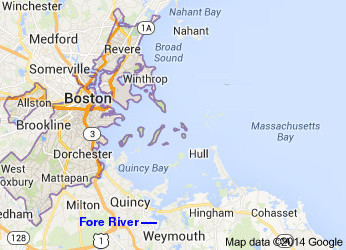Deacon John Whitman
![]() |
Wife: Prudence Alcock |
9 Children:
Thomas Whitman (1629-1692)
John Whitman (1630-1713)
Sarah Whitman (1633-1718)
Mary Whitman (1634-1716)
Elizabeth Whitman (1636-1720)
Hannah Whitman (1641-1720)
Judith Whitman (1643-1711)
Zachariah Whitman (1644-1726)
Abiah Whitman (1646-1727)
|
Father: Richard Whitman
Mother: Sibell Cadel

|
The following is mostly condensed from "John Whitman Emigrates to America" by Brian Whitman.
John Whitman was born on 7 Jan 1598 in Holt, Norfolk, England to Richard Whitman and Sibell
Cadell. In 1628 John married Prudence Alcock, daughter of Henry Alcock and Sarah Church. This
was during a period of the Thirty Years War in Europe (1618-1848), during which the Catholic Church tried
to stamp out the Protestant movement by force. England joined that war in 1842. The Puritans avoided most
of that war by escaping to America, where they could be free
to practice Christianity according to their understanding of the (Geneva) Bible.
 |
Modern map of Weymouth, Mass.
The Pilgrims were the most famous early European inhabitants of Massachusetts, having
arrived in 1620. They set up a government in accordance with the
famous "Mayflower Compact", which provided a basis for the stream of colonists
arriving in subsequent years, including the Whitmans. The Puritan John Whitman settled in Weymouth,
Massachusetts by 1638. It had been founded in 1633 about ten miles south of Boston on the
navigable Fore River (see illustration). Massachusetts Bay Colony
had received its official charter to be a British colony in 1630.
John was able to establish himself and bring over his wife and five children by 1640.
Four more children were born in America from 1841 to 1846: Hannah, Judith, Zachariah, and Abiah.
He had been declared a free citizen, was made a military officer (ensign) in 1645, was an
envoy to the local natives, and was made Deacon of the Church in Weymouth. He continued as
an ensign until March 16, 1680, at age 82. He held the post of Deacon until his death on
13 Nov 1692, at age 94!
Their family 21-acre farm was just north of Weymouth on the road to Boston. By 1663 it had
increased to 60 acres. John became a known land owner, buying and selling many plots of ground.
Brian Whitman states, "Many of the colonists, John Whitman probably included, saw themselves as God's
chosen people who were going off to prove to the world that a country in which Puritan
beliefs were practiced would succeed and be blessed. John Winthrop, first Governor of
Massachusetts and the man who most likely recruited the Whitman brothers as
colonists, said, 'We shall be a city upon a hill, a beacon to humanity.'"
"The colonists believed that church attendance and religious practice were cornerstones
of a successful life. Education was very important, if for no other reason because it was
important to be able to read and interpret the Bible, in the original languages if possible.
Taking notes during sermons was encouraged." This emphasis on religion was the cornerstone of life in Weymouth in the
1600s.
